- Home
- L. Ron Hubbard
Ole Doc Methuselah: The Intergalactic Adventures of the Soldier of Light Page 2
Ole Doc Methuselah: The Intergalactic Adventures of the Soldier of Light Read online
Page 2
He went inside and threw on Force Field Beta minus the Nine Hundred and Sixtieth Degree Arc, that being where Ole Doc was. Seeing that his worshiped master went on fishing, either unwitting or uncaring, Hippocrates then served out blasters and twenty rounds to himself and went back to sit on the bottom step of the port ladder.
The big spaceship—dented a bit, but lovely—simmered quietly in Procyon’s inviting light and the brook rippled and Ole Doc kept casting for whatever outrageous kind of fish he might find in that stream. This went on for an hour and then two things happened. Ole Doc, unaware of the force field, cast into it and got his fly back into his hat and a young woman came stumbling, panic-stricken, across the meadow toward the Morgue.
From amongst the stalks of flowers some forty feet high emerged an Earthman, thick and dark, wearing the remains of a uniform to which had been added civil space garb. He rushed forward a dozen meters before he paused in stride at the apparition of the huge golden ship with its emblazoned crossed ray rods of pharmacy. Then he saw Ole Doc fishing and the pursuer thrust a helmet up from a contemptuous grin.
It was nearer to Ole Doc than to the ship, and the girl, exhausted and disarrayed, stumbled toward him. The Earthman swept wide and put Ole Doc exactly between himself and the ladder before he came in.
Hippocrates turned from page forty-nine to page one hundred and fifteen. He leaped nimbly up to the top of the ship in the hope of shooting the Earthman on an angle which would miss Ole Doc. But he had no more than arrived and sighted before it became apparent to him that he would also now shoot the girl. This puzzled him. Obviously the girl was not an enemy who would harm Ole Doc. But the Earthman was. Still, it was better to blast girl and Earthman than to see Ole Doc harmed in any cause. The effort at recalling an exact instance made Hippocrates tremble and in that tremble Ole Doc also came into his fire field.
Having no warnings whatever, Ole Doc had just looked up from disentangling his hook from first his shirt and then his thumb and beheld two humans cannonading down upon him.
The adrenalized condition of the woman was due to the Earthman, that was clear. The Earthman was obviously a blast-for-hire from some tough astral slum and he had recently had a fight, for two knuckles bled. The girl threw herself in a collapse at Ole Doc’s feet and the Earthman came within a fatal fifteen feet.
Ole Doc twitched his wrist and put his big-hooked fly into the upper lip of the Earthman. This disappointed Ole Doc a little for he had been trying for the nose. The beggar was less hypothyroid than he had first estimated.
Pulling his game-fish bellowing into the stream, Ole Doc disarmed him and let him have a ray barrel just back of the medulla oblongata—which took care of the fellow nicely.
Hippocrates lowered himself with disappointed grunts down to the ladder. At his master’s hand signal he came forth with two needles, filled, sterilized and awaiting only a touch to break their seals and become useful.
Into the gluteal muscle—through clothes and all, because of sterilizing radiation of the point—Ole Doc gave the Earthman the contents of needle one. At the jab the fellow had squirmed a little and the doctor lifted one eyelid.
“You are a stone!” said Ole Doc. “You can’t move.”
The Earthman lay motionless, wide-eyed, being a stone. Hippocrates carefully noted the time with the fact in order to remind his master to let the fellow stop being a stone sometime. But in noting the time, Hippocrates found that it was six minutes to thirty-six o’clock and therefore time for a much more important thing—Ole Doc’s own medicine.
Brusquely, Hippocrates grabbed up the unconscious girl and waded back across the stream with her. The girl could wait. Thirty-six o’clock was thirty-six o’clock.
“Hold up!” said Ole Doc, needle poised.
Hippocrates grunted and kept on walking. He went directly into the main operating room of the Morgue and there amidst the cleverly jammed hotchpotch of trays and ray tubes, drawers, masks, retorts and reflectors, he unceremoniously dropped the girl. Monominded now, for this concerned his master—and where the rest of the world could go if it interfered with his master was a thing best expressed in silence—Hippocrates laid out the serum and the proper rays.
Humbly enough, the master bared his arm and then exposed himself—as a man does before a fireplace on a cold day—to the pouring out of life from the fixed tubes. It took only five minutes. It had to be done every five days.
Satisfied now, Hippocrates boosted the girl into a proper position for medication on the center table and adjusted a lamp or two fussily, while admiring his master’s touch with the needle.
Ole Doc was smiling, smiling with a strange poignancy. She was a very pretty girl, neatly made, small waisted, high breasted. Her tumbling crown of hair was like an avalanche of fire in the operating lights. Her lips were very soft, likely to be yielding to—
“Father!” she screamed in sudden consciousness. “Father!”
Ole Doc looked perplexed, offended. But then he saw that she did not know where she was. Her wild glare speared both master and thing.
“Where is my father?”
“We don’t rightly know, ma’am,” said Ole Doc. “You just—”
“He’s out there. They shot our ship down. He’s dying or dead! Help him!”
Hippocrates looked at master and master nodded. And when the servant left the ship it was with a bound so swift that it rocked the Morgue a little. He was only a meter tall, was Hippocrates, but he weighed nearly five hundred kilos.
Behind him came Ole Doc, but their speeds were so much at variance that before the physician could reach the tall flowers, Hippocrates was back through them carrying a man stretched out on a compartment door wrenched from its strong hinges for the purpose. That was page eight of First Aid in Space, not to wrestle people around but to put them on flat things. Man and door weighed nearly as much as Hippocrates but he wanted no help.
“‘Lung burns,”’ said Hippocrates, “‘are very difficult to heal and most usually result in death. When the heart is also damaged, particular care should be taken to move the patient as little as possible since exertion. . . .”’
Ole Doc listened to, without heeding, the high, squeaky singsong. Walking beside the girl’s father, Ole Doc was not so sure.
He felt a twinge of pity for the old man. He was proud of face, her father, gray of hair and very high and noble of brow. He was a big man, the kind of a man who would think big thoughts and fight and die for ideals.
The doctor beheld the seared stains, the charred fabric, the blasted flesh which now composed the all of the man’s chest. The bloody and gruesome scene was not a thing for a young girl’s eyes, even under disinterested circumstances—and a hypo would only do so much.
He stepped to the port and waved a hand back to the main salon. There was a professional imperiousness about it which thrust her along with invisible force. Out of her sight now, Ole Doc allowed Hippocrates to place the body on the multi-trayed operating table.
Under the gruesome flicker of ultraviolet, the wounded man looked even nearer death. The meters on the wall counted respiration and pulse and hemoglobin and all needles hovered in red while the big dial, with exaggerated and inexorable calm, swept solemnly down toward black.
“He’ll be dead in ten minutes,” said Ole Doc. He looked at the face, the high forehead, the brave contours. “He’ll be dead and the breed is gone enough to seed.”
At the panel, the doctor threw six switches and a great arc began to glow and snap like a hungry beast amid the batteries of tubes. A dynamo whined to a muted scream and then another began to growl. Ozone and brimstone bit the nostrils. The table was pooled in smoky light.
The injured man’s clothing vanished and, with small tinks, bits of metal dropped against the floor—coins, buckles, shoe nails.
Ole Doc tripped another line of switches and a third motor commenced to yell. The light about the table graduated from blue up to unseen black. The great hole in the charred chest began to gl
ow whitely. The beating heart which had been laid bare by the original weapon slowed, slowed, slowed.
With a final twitch of his wrist, Ole Doc cut out the first stages and made his gesture to Hippocrates. That one lifted off the top tray which bore the man and, holding it balanced with one hand, opened a gravelike vault. There were long green tubes glowing in the vault and the feel of swirling gases. Hippocrates slid the tray along the grooves and clanged the door upon it.
Ole Doc stood at the board for a while, leaning a little against the force field which protected him from stray or glancing rays, and then sighing a weary sigh, evened the glittering line. Normal light and air came back into the operating room and the salon door slid automatically open.
The girl stood there, tense question in her every line, fear digging nails into palms.
Ole Doc put on a professional smile. “There is a very fair chance that we may save him, Miss—”
“Elston.”
“A very fair chance. Fifty-fifty.”
“But what are you doing now?” she demanded.
Ole Doc would ordinarily have given a rough time to anyone else who had dared to ask him that. But he felt somehow summery as he gazed at her.
“All I can, Miss Elston.”
“Then he’ll soon be well?”
“Why . . . ah . . . that depends. You see, well . . .” How was he going to tell her that what he virtually needed was a whole new man? And how could he explain that professional ethics required one to forgo the expedience of kidnapping, no matter how vital it might seem? For what does one do with a heart split in two and a lung torn open wide when they are filled with foreign matter and ever-burning rays unless it is to get a new chest entire?
“We’ll have to try,” he said. “He’ll be all right for now. . . for a month, or more perhaps. He is in no pain, will have no memory of this and if he is ever cured, will be cured entirely. The devil of it is, Miss Elston, men always advance their weapons about a thousand years ahead of medical science. But then, we’ll try. We’ll try.”
And the way she looked at him then made it summer entirely. “Even . . .” she said hesitantly, “even if you are so young, I have all the confidence in the universe in you, Doctor.”
That startled Ole Doc. He hadn’t been patronized that way for a long, long time. But more important—he glanced into the mirror over the table. He looked more closely. Well, he did look young. Thirty, maybe. And a glow began to creep up over him, and as he looked back to her and saw her cascading glory of hair and the sweetness of her face—
“Master Doctor!” interrupted the unwelcome Hippocrates. “The Earthman is gone.”
Ole Doc stared out the port and saw thin twirls of smoke arising from the charred and blasted grass. The Earthman was gone all right, and very much gone for good. But one boot remained.
“Looks,” said Ole Doc, “like we’ve got some opposition.”
Chapter Two
“We were proceeding to Junction City,” said the girl, “when a group of men shot down our ship and attacked us.”
Ole Doc picked a thoughtful tooth, for the fish he had caught had been excellent—deep fried, southern style. He felt benign, chivalrous. Summer was in full bloom. He was thinking harder about her hair than about her narrative. Robbery and banditry on the spaceways were not new, particularly on such a little-inhabited planet as Spico, but the thoughts which visited him had not been found in his mind for a long, long time. She made a throne room of the tiny dining salon and Ole Doc harked back to lonely days in cold space, on hostile and uninviting planets, and the woman-hunger which comes.
“Did you see any of them?” he asked, only to hear her voice again.
“I didn’t need to,” she said.
The tone she took startled Ole Doc. Had he been regarding this from the viewpoint of volume sixteen of Klote’s standard work on human psychology, he would have realized the predicament into which, with those words, he had launched himself. Thirteen hundred years ago a chap named Malory had written a book about knight-errantry; it had unhappily faded from Ole Doc’s mind.
“Miss Elston,” he said, “if you know the identity of the band then perhaps something can be done, although I do not see what you could possibly gain merely by bringing them to the Bar of the Space Council.”
Hippocrates was lumbering back and forth at the buffet clearing away the remains of the meal. He was quoting singsong under his breath the code of the Soldiers of Light, “It shall be unlawful for any medical officer to engage in political activities of any kind, to involve himself with law, or in short, aid or abet the causes, petty feuds, personal vengeances . . . ’” Ole Doc did not hear him. The music of Venus was in Miss Elston’s voice.
“Why, I told you about the box, Doctor, it contains the deed to this planet and, more important than that, it has the letter which my father was bringing here to restrain his partner from selling off parcels of land at Junction City. Oh, Doctor, can’t you understand how cruel it is to these people? More than ten thousand of them have come here with all the savings they have in the universe to buy land in the hope that they can profit by its resale to the Procyon-Sirius Spaceways.
“When my father, Judge Elston, first became interested in this scheme it was because it had been brought to his attention by a Captain Blanchard who came to us at our home near New York and told us that he had private information that Spico was completely necessary to the Procyon-Sirius Spaceways as a stopover point and that it would be of immense value. Nobody knew, except some officials in the company, according to Captain Blanchard, and my father was led to believe that Captain Blanchard had an excellent reputation and that the information was entirely correct.
“Blanchard came here on Spico some time ago and laid out the necessary landing fields and subdivided Junction City, using my father’s name and money. He circulated illustrated folders everywhere setting forth the opportunities of business and making the statement that the Spaceways would shortly begin their own installation. Thousands and thousands of people came here in the hope either of settling and beginning a new life or of profiting in the boom which would result. Blanchard sold them land still using my father’s name.
“A short while ago my father learned from officials of the company that a landing field was not necessary here due to a new type of propulsion motor which made a stopover unnecessary. He learned also that Captain Blanchard had been involved in blue-sky speculations on Alpha Centauri. He visiographed Blanchard and told him to cease all operations immediately and to refund all money, saying that he, Judge Elston, would absorb any loss occasioned in the matter. Blanchard told him that it was a good scheme and was making money and that he didn’t intend to refund a dime of it. He also said that if my father didn’t want himself exposed as a crook, he would have to stay out of it. Blanchard reminded him that only the name of Elston appeared on all literature and deeds and that the entire scheme had obviously been conceived by my father. Then he threatened to kill my father and we have been unable to get in contact with him since.
“I begged my father to expose Blanchard to the Upper Council but he said he would have to wash his own dirty linen. Immediately afterwards we came up here. He tried to leave me behind but I was terrified that something would happen to him and so I would not stay home.
“My father had the proof that the Procyon-Sirius Spaceways would not build their field here. It was in that box. Blanchard has kept good his threat. He attacked us, he stole the evidence, and now—” She began to sob suddenly at the thought of her father lying there in that harshly glittering room so close to death. Hippocrates phonograph-recordwise was beginning the code all over again. “‘It shall be unlawful for any medical officer to engage in political activities of any kind, to involve himself with law, or in short, aid or abet the causes, petty feuds, personal vengeances . . . ’”
But Ole Doc’s eyes were on her hair and his mind was roaming back to other days. Almost absently he dropped a minute capsule in her water glass and t
old her to drink it. Soon she was more composed.
“Even if you could save my father’s life, Doctor,” she said, “it wouldn’t do any good. The shock of this scandal would kill him.”
Ole Doc hummed absently and put his hands behind his head. His black silk dressing gown rustled. His youthful eyes drifted inwards. He thrust his furred boots out before him. The humming stopped. He sat up. His fine surgeon’s hands doubled into fists and with twin blows upon the table he propelled himself to his feet.
“Why, there is nothing more simple than this. All we have to do is find this Blanchard, take the evidence away from him, tell the people that they’ve been swindled, give them back their money, put your father on his feet and everything will be all right. The entire mess will be straightened out in jig time.” He beamed fondly upon her. And then, with an air of aplomb, began to pour fresh wine. He had half filled the second glass when abrupt realization startled him so that he spilled a great gout of wine where it lay like a puddle of blood on the snowy cloth.
But across from him sat his ladye faire and now that he had couched his lance and found himself face to face with an enemy, even the thought of the shattered and blackened remains of the Earthman did not drive him back. He smiled reassuringly and patted her hand.
Her eyes were jewels in the amber light.
Chapter Three
Junction City was all turmoil, dust and hope. There were men there who had made a thousand dollars yesterday, who had made two thousand dollars this morning, and who avidly dreamed of making five thousand before night. Lots were being bought and sold with such giddy rapidity that no one could keep trace of their value. Several battered tramp spaceships which had brought pioneers and their effects lay about the spaceport. Rumors, all of them confident, all of them concerning profit, banged about the streets like bullets.
Smug, hard and ruthless, Edouard Blanchard sat under the awning of the Comet Saloon. His agate eyes were fixed upon a newly arrived ship, a gold-colored ship with crossed ray rods upon her nose. He looked up and down the crowded dusty street where spaceboot trod on leather brogan and placesilk rustled on denim. Men and women from a hundred planets were there. Men of hundreds of races and creeds were there with pasts as checkerboard as history itself, yet bound together by a common anxiety to profit and build a world anew.

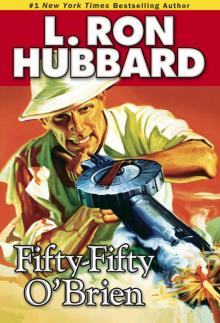 Fifty-Fifty O'Brien
Fifty-Fifty O'Brien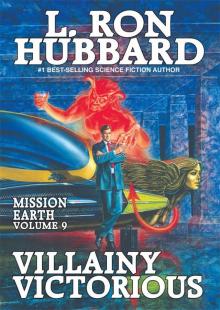 Villainy Victorious
Villainy Victorious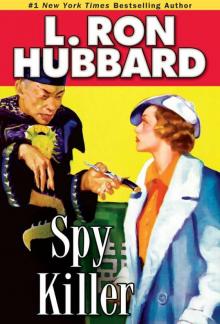 Spy Killer
Spy Killer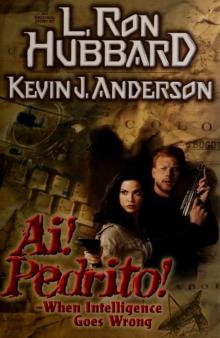 Ai! Pedrito!: When Intelligence Goes Wrong
Ai! Pedrito!: When Intelligence Goes Wrong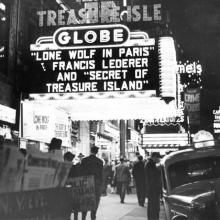 The Dangerous Dimension
The Dangerous Dimension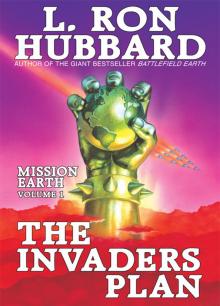 Mission Earth Volume 1: The Invaders Plan
Mission Earth Volume 1: The Invaders Plan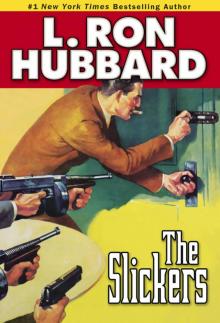 The Slickers
The Slickers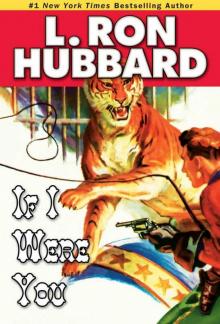 If I Were You
If I Were You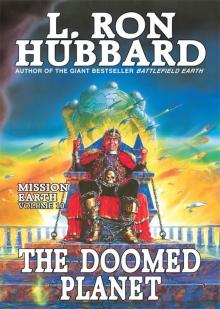 The Doomed Planet
The Doomed Planet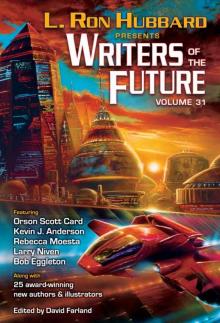 Writers of the Future Volume 31
Writers of the Future Volume 31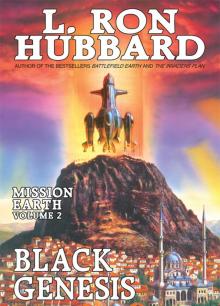 Mission Earth Volume 2: Black Genesis
Mission Earth Volume 2: Black Genesis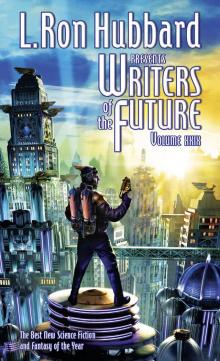 Writers of the Future: 29
Writers of the Future: 29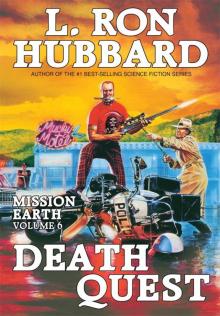 Death Quest
Death Quest The Enemy Within
The Enemy Within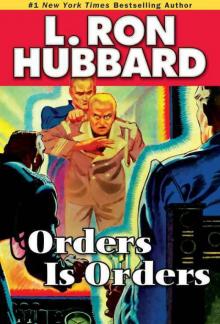 Orders Is Orders
Orders Is Orders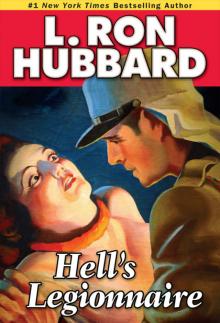 Hell's Legionnaire
Hell's Legionnaire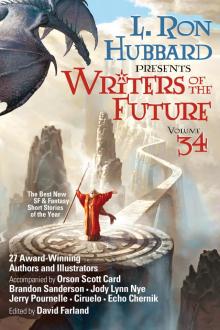 L. Ron Hubbard Presents Writers of the Future 34
L. Ron Hubbard Presents Writers of the Future 34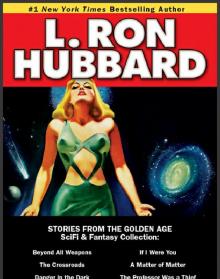 The Scifi & Fantasy Collection
The Scifi & Fantasy Collection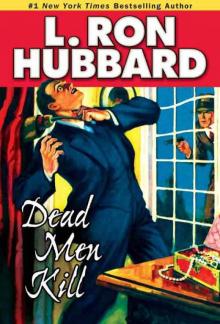 Dead Men Kill
Dead Men Kill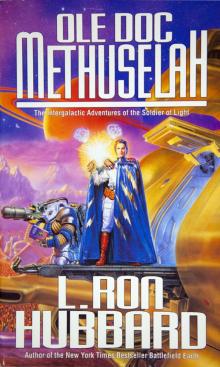 Ole Doc Methuselah: The Intergalactic Adventures of the Soldier of Light
Ole Doc Methuselah: The Intergalactic Adventures of the Soldier of Light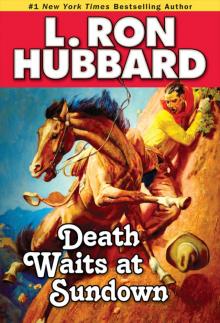 Shadows From Boot Hill
Shadows From Boot Hill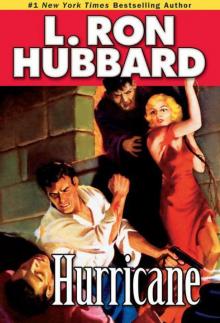 Hurricane
Hurricane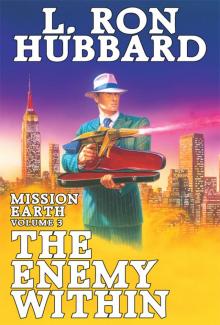 Mission Earth Volume 3: The Enemy Within
Mission Earth Volume 3: The Enemy Within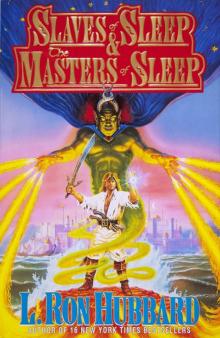 Slaves of Sleep & the Masters of Sleep
Slaves of Sleep & the Masters of Sleep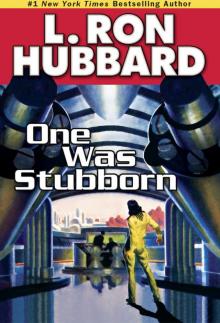 One Was Stubborn
One Was Stubborn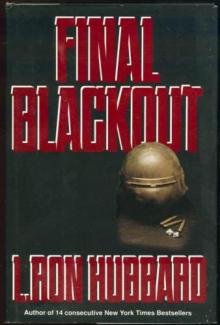 Final Blackout: A Futuristic War Novel
Final Blackout: A Futuristic War Novel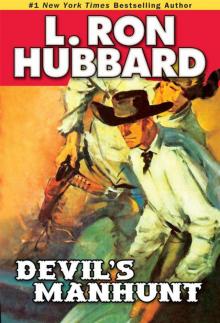 Devil's Manhunt
Devil's Manhunt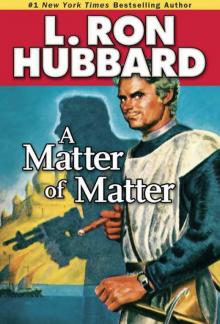 A Matter of Matter
A Matter of Matter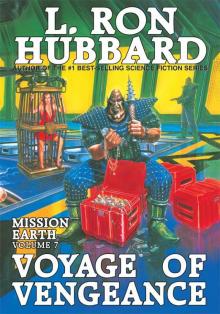 Voyage of Vengeance
Voyage of Vengeance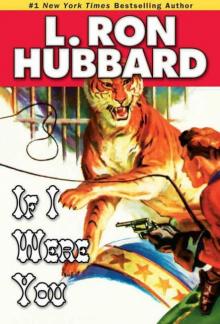 If I Were You (Science Fiction & Fantasy Short Stories Collection)
If I Were You (Science Fiction & Fantasy Short Stories Collection)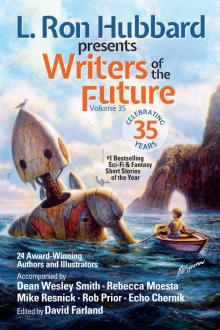 L. Ron Hubbard Presents Writers of the Future Volume 35
L. Ron Hubbard Presents Writers of the Future Volume 35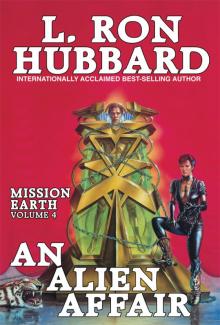 Mission Earth Volume 4: An Alien Affair
Mission Earth Volume 4: An Alien Affair Black Genesis
Black Genesis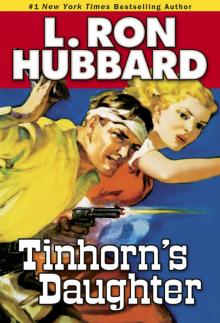 Tinhorn's Daughter
Tinhorn's Daughter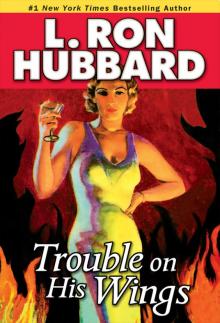 Trouble on His Wings
Trouble on His Wings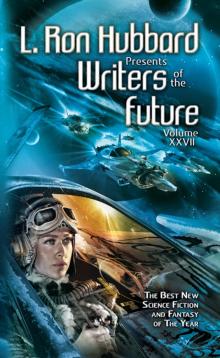 Writers of the Future Volume 27: The Best New Science Fiction and Fantasy of the Year
Writers of the Future Volume 27: The Best New Science Fiction and Fantasy of the Year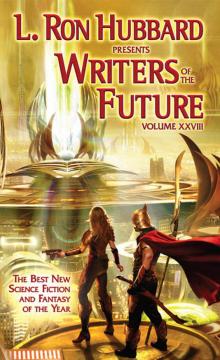 Writers of the Future Volume 28: The Best New Science Fiction and Fantasy of the Year
Writers of the Future Volume 28: The Best New Science Fiction and Fantasy of the Year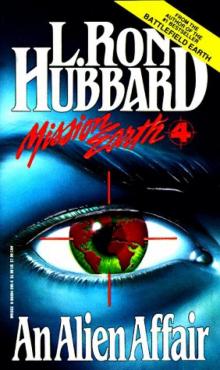 An Alien Affair
An Alien Affair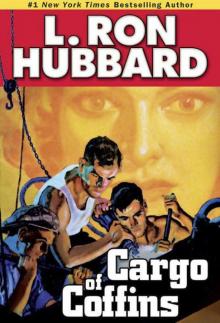 Cargo of Coffins
Cargo of Coffins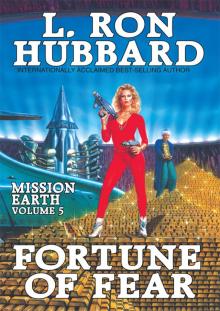 Mission Earth Volume 5: Fortune of Fear
Mission Earth Volume 5: Fortune of Fear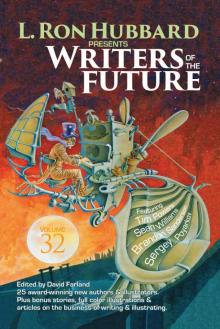 Writers of the Future 32 Science Fiction & Fantasy Anthology
Writers of the Future 32 Science Fiction & Fantasy Anthology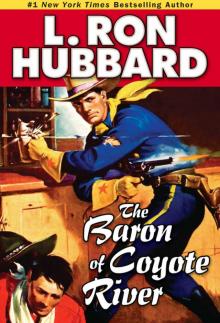 The Baron of Coyote River
The Baron of Coyote River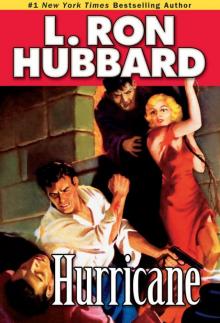 Hurricane (Stories From the Golden Age)
Hurricane (Stories From the Golden Age)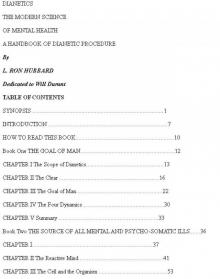 Dianetics: The Modern Science of Mental Health
Dianetics: The Modern Science of Mental Health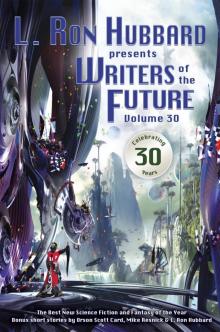 Writers of the Future, Volume 30
Writers of the Future, Volume 30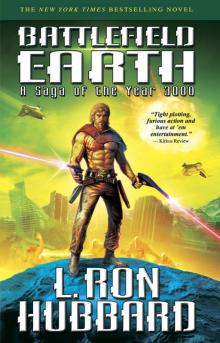 Battlefield Earth: A Saga of the Year 3000
Battlefield Earth: A Saga of the Year 3000 Fear
Fear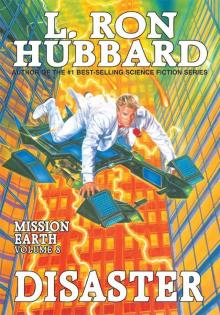 Disaster
Disaster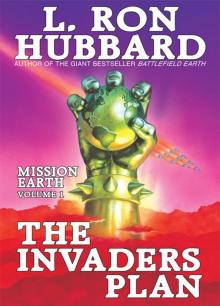 Invaders Plan, The: Mission Earth Volume 1
Invaders Plan, The: Mission Earth Volume 1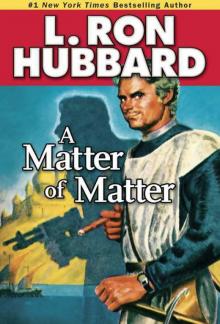 A Matter of Matter (Stories from the Golden Age)
A Matter of Matter (Stories from the Golden Age)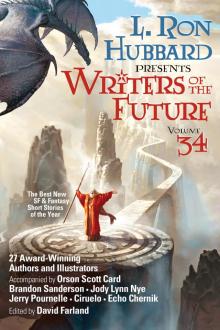 Writers of the Future Volume 34
Writers of the Future Volume 34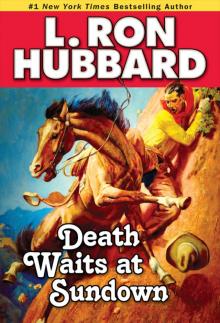 Death Waits at Sundown
Death Waits at Sundown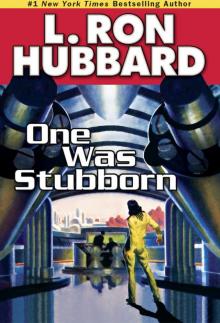 One Was Stubbron
One Was Stubbron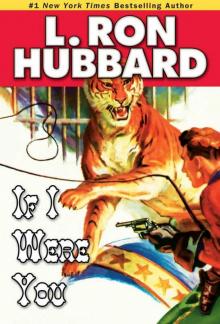 If I Were You (Stories from the Golden Age)
If I Were You (Stories from the Golden Age)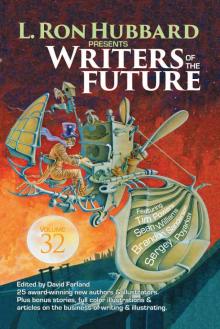 Writers of the Future 32 Science Fiction & Fantasy Anthology (L. Ron Hubbard Presents Writers of the Future)
Writers of the Future 32 Science Fiction & Fantasy Anthology (L. Ron Hubbard Presents Writers of the Future)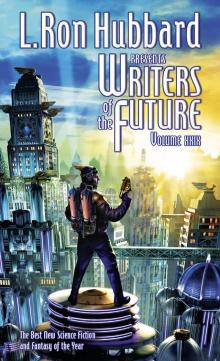 Writers of the Future, Volume 29
Writers of the Future, Volume 29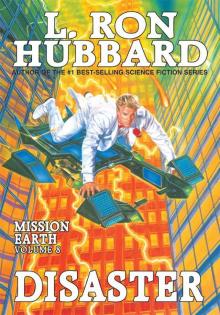 Mission Earth Volume 8: Disaster
Mission Earth Volume 8: Disaster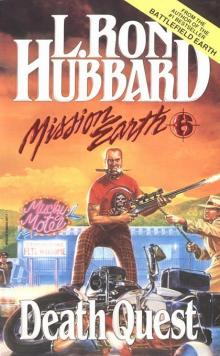 Mission Earth 6: Death Quest
Mission Earth 6: Death Quest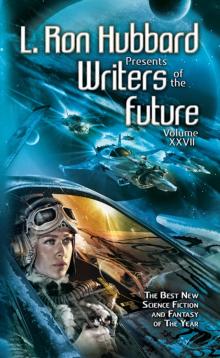 Writers of the Future, Volume 27
Writers of the Future, Volume 27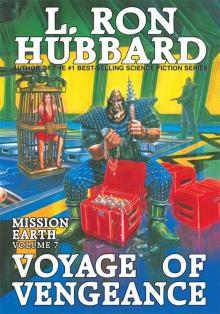 Mission Earth Volume 7: Voyage of Vengeance
Mission Earth Volume 7: Voyage of Vengeance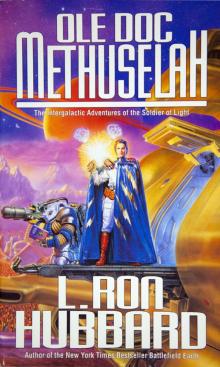 Ole Doc Methuselah
Ole Doc Methuselah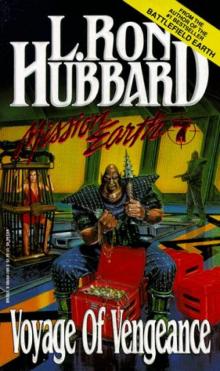 Mission Earth 07: Voyage of Vengeance
Mission Earth 07: Voyage of Vengeance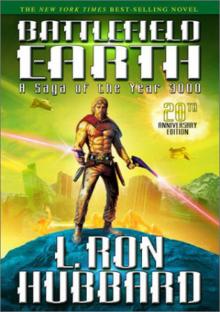 Battlefield Earth
Battlefield Earth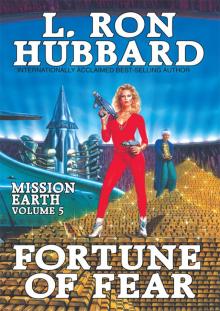 Fortune of Fear
Fortune of Fear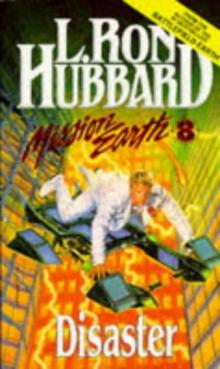 Mission Earth 8: Disaster
Mission Earth 8: Disaster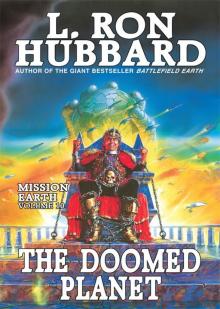 Mission Earth Volume 10: The Doomed Planet
Mission Earth Volume 10: The Doomed Planet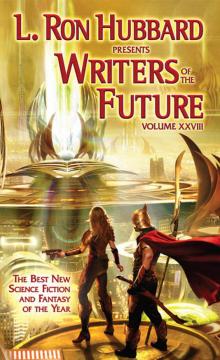 Writers of the Future, Volume 28
Writers of the Future, Volume 28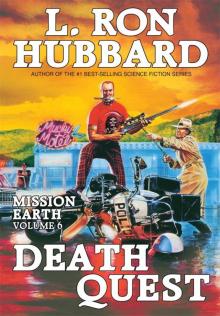 Mission Earth Volume 6: Death Quest
Mission Earth Volume 6: Death Quest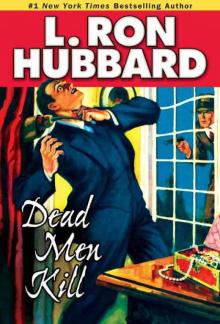 Dead Men Kill (Stories from the Golden Age)
Dead Men Kill (Stories from the Golden Age)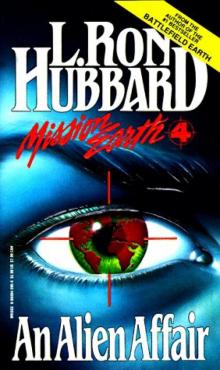 Mission Earth 4: An Alien Affair
Mission Earth 4: An Alien Affair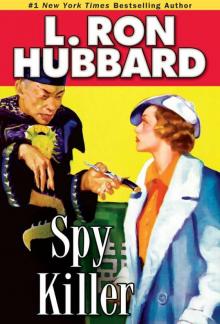 Spy Killer (Stories from the Golden Age)
Spy Killer (Stories from the Golden Age)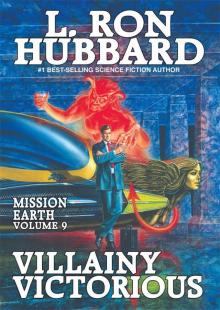 Mission Earth Volume 9: Villainy Victorious
Mission Earth Volume 9: Villainy Victorious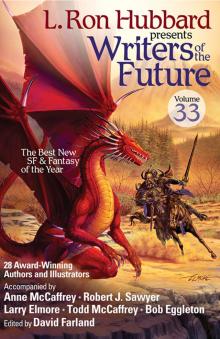 L. Ron Hubbard Presents Writers of the Future, Volume 33
L. Ron Hubbard Presents Writers of the Future, Volume 33